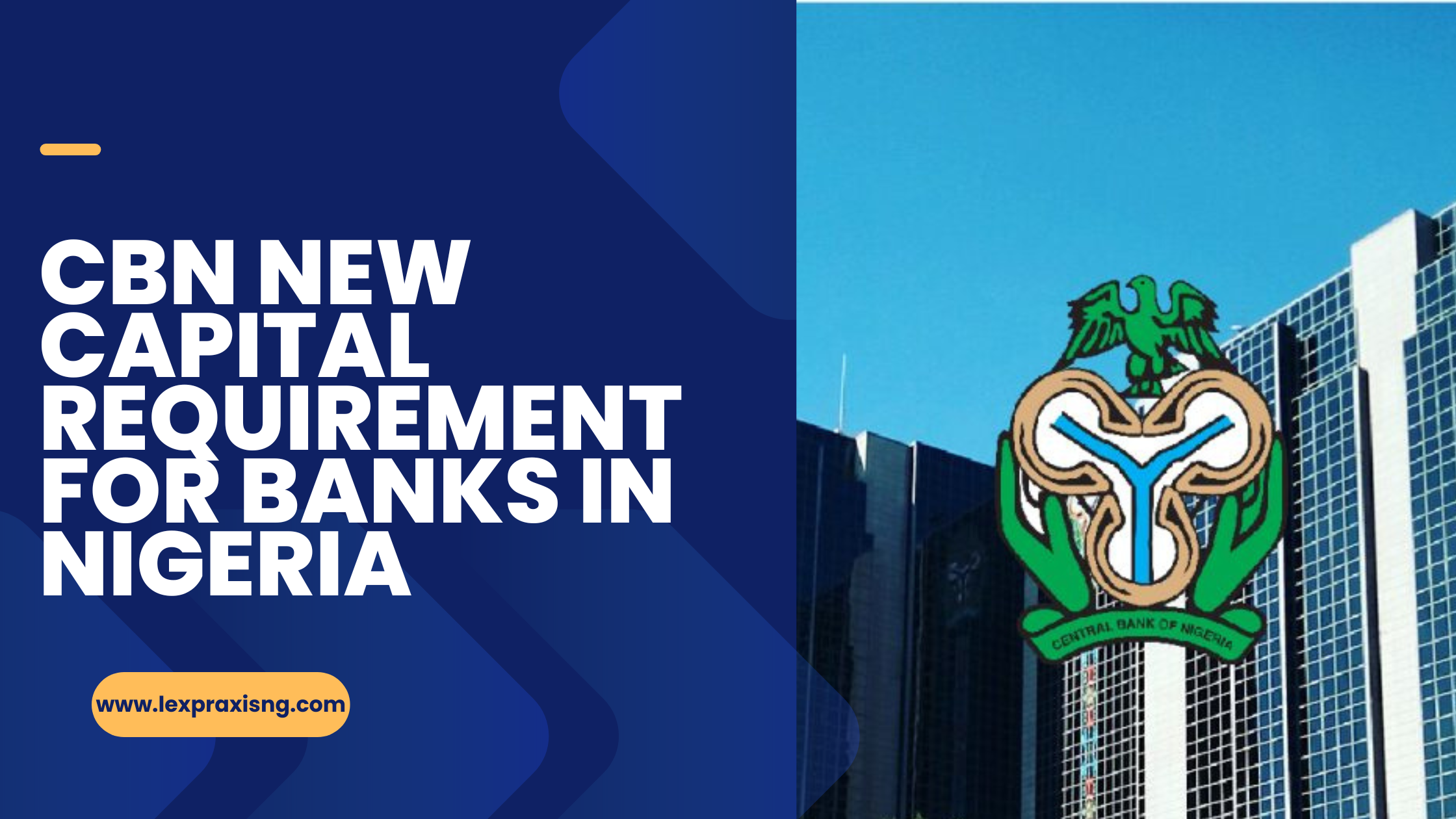To promote the resilience, solvency, and capacity of banks while continuing to augment the growth of the Nigerian economy among the prevailing macroeconomic challenges in Nigeria, the Central Bank of Nigeria (CBN), on 28 March 2024 reviewed the minimum capital requirement for commercial, merchant, and non-interest banks.
This article will consider in detail, the requirements and additional guidelines related to this directive.
WHAT IS THE CURRENT CAPITAL REQUIREMENT FOR BANKS
The new minimum capital requirements for commercial, merchant, and non-interest banks are as follows;
| TYPE OF BANK | AUTHORISATION | MINIMUM CAPITAL
(N Billion) |
| Commercial | International | 500 |
| National | 200 | |
| Regional | 50 | |
| Merchant | National | 50 |
| Non-Interest | National | 20 |
| Regional | 10 |
With regards to the revised share capital, all existing banks and promoters of proposed banks are to take note of the following;
In the case of existing banks, the minimum capital provided above must consist of only paid-up capital and share premium. Secondly, all banks are required to meet the minimum capital requirement within 24 months commencing from the 1st day of April 2024 to the 31st of March 2026.
For proposed banks, the new minimum capital requirement shall be paid-up capital. The capital requirement applies to new applications submitted after April 1st, 2024.
OPTIONS AVAILABLE TO EXISTING BANKS TO SATISFY THE NEW MINIMUM CAPITAL REQUIREMENT
To satisfy the new capital requirement, existing banks may exercise either of the following options:
a. Inject fresh equity capital through private placements, rights issue, and or offers for subscription.
By using this option, the bank can promote the sale of its shares in various ways like through direct offer, placement, etc. This will make it easier for the public to acquire shares and invest capital in the bank, thereby increasing the bank’s share capital. Additionally, existing shareholders will have the right to be issued new shares as a matter of priority through a rights issue. This will enable them to increase their equity stake in the bank. This approach also eliminates the need for dividend declarations, and instead, new shares will be issued to members who invest the same back into the bank, thereby helping the bank meet its capital requirements.
b. Mergers and Acquisitions
It is worth noting that, in Nigeria, compliance with the Banks and Other Financial Institutions Act 2020 (BOFIA) and the regulations of the Securities and Exchange Commission (SEC) are essential when considering mergers and acquisitions for listed banks. This requirement affects the structuring of transactions and timelines. Therefore, it is expected that the Central Bank of Nigeria will collaborate fully with the banks as necessary to ensure that the mergers and acquisitions that result from the new capital requirements are carried out seamlessly across the industry in Nigeria.
c. Upgrade or downgrade of license authorization
CONCLUSION
The whole essence of the CBN banking sector recapitalization initiative is to ensure that Nigerian banks can take bigger risks and stay afloat in times of trouble, support different sectors of the economy, and improve confidence in the banking system we therefore consider it a welcome development.
However, in the upcoming 24 months, it will be interesting to see the various options adopted by the banks to meet the new capital requirements. One glaring option of exploration will be the resurgence of activities such as public offers, rights issues, and private placements within the equity capital markets (ECM) segment of the capital markets which has been largely quiet over the years.
We also looking forward to seeing some degree of activity and possibly a couple of downgrades for banks that struggle to attract the required capital quickly, but find it unattractive to adopt mergers and acquisitions.
